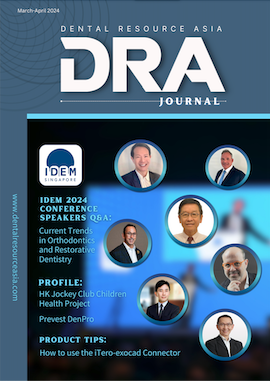A recent study published in the journal Nature suggests a potential link between a common type of bacteria associated with dental plaque and a form of colorectal cancer resistant to treatment. The bacterium, Fusobacterium nucleatum, was found in half of the tumors examined, raising significant implications for future treatments and screening methods.
Rising Colorectal Cancer Rates and Younger Patients
Colorectal cancer stands as the second-leading cause of cancer-related deaths in the United States, with projections estimating over 53,000 fatalities in 2024. Alarmingly, rates among younger individuals are sharply increasing, nearly doubling from 11% to 20% of cases between 1995 and 2019. Dr. Flavio Rocha from the Oregon Health & Science University notes the challenge in understanding this shift, emphasizing the importance of early detection.
Fusobacterium nucleatum, primarily found in the mouth and linked to oral diseases, was discovered to harbor two distinct subspecies. One of these subspecies acts as a shield for colorectal tumors against cancer-fighting drugs, hindering immune cell response. According to co-lead study author Susan Bullman, individuals with elevated levels of this bacterium in their tumors exhibit poorer responses to chemotherapy and heightened recurrence risks.
 Click to Visit website of India's Leading Manufacturer of World Class Dental Materials, Exported to 90+ Countries.
Click to Visit website of India's Leading Manufacturer of World Class Dental Materials, Exported to 90+ Countries.
Implications for Treatment and Prevention
Dr. Michael White of The University of Texas MD Anderson Cancer Center highlights the potential of targeted therapies, suggesting that clearing these bacteria could enhance treatment response. Clinical trials are forthcoming to investigate the efficacy of antibiotics prior to chemotherapy. Moreover, identifying harmful bacterial subspecies, including Fusobacterium nucleatum, could enable tailored prevention strategies, such as administering antibiotics at the oral stage.
The discovery of this bacterial subtype opens avenues for novel treatments and screening methods. Possibilities include the development of antibiotics targeting specific bacterial strains and utilizing modified bacteria for targeted drug delivery into tumors. Dr. Rocha emphasizes the growing significance of understanding the microbiome’s role in cancer risk, indicating promising prospects for cancer research.
The information and viewpoints presented in the above news piece or article do not necessarily reflect the official stance or policy of Dental Resource Asia or the DRA Journal. While we strive to ensure the accuracy of our content, Dental Resource Asia (DRA) or DRA Journal cannot guarantee the constant correctness, comprehensiveness, or timeliness of all the information contained within this website or journal.
Please be aware that all product details, product specifications, and data on this website or journal may be modified without prior notice in order to enhance reliability, functionality, design, or for other reasons.
The content contributed by our bloggers or authors represents their personal opinions and is not intended to defame or discredit any religion, ethnic group, club, organisation, company, individual, or any entity or individual.


